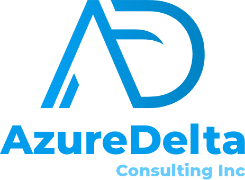Clinical pharmacology's next stage
Drug Development
Call for papers
AzureDelta Consulting Inc.
My company is devoted to consulting in clinical research and the name represents multiple meanings related to Clinical Pharmacology.
Azure is a color of dreams, helping pharmaceutical companies to bring better medicine to patients faster and safer to save lives and make families happier.
Azure is A to Z of clinical support encompassing impact of adjacent areas such as CMC and nonclinical research on Clinical Pharmacology.
Delta is a difference that streamlined clinical programs can make in patients’ journeys and in the success of pharmaceutical companies.
Delta is fertile land where the river tributaries meet the ocean for merging creative ideas and collaboration.

About AzureDelta Consultant Galina Bernstein, PhD
Galina Bernstein has over 20 years of experience in the Preclinical Research and Pharmaceutical and Medical Devices Industry. Galina Bernstein received her PhD degree in Biochemistry from Moscow State University and a Certificate of postdoctoral training in Medicinal Chemistry from the University of Michigan College Of Pharmacy.
She received formal PK training during her postdoctoral tenure with the Pharmacokinetics, Dynamics and Metabolism Department of Pfizer GRD (former Parke-Davis/Warner-Lambert).
She has conducted non-compartmental PK, compartmental PK and advanced PK/PD modelling including exposure-response, population PK and PK/PD analyses, biomarkers selection and correlation analysis.
Galina Bernstein has provided preclinical, clinical pharmacology, pharmacometrics and analytical support for multiple clinical programs for over 300 studies including over 30 studies for the pediatric population. She was involved in a large number of studies for rare diseases as well as advanced therapy medicinal products (ATMP) such as gene therapy. She has been involved in the development and characterization of medical devices and clinical programs in the therapeutic areas of oncology, CNS, vaccines, dermatology, diabetes, cardiovascular, immunology, infectious diseases, renal impairment and others.
Galina Bernstein charted clinical development plans for a wide variety of drugs and indications, represented multiple pharmaceutical companies at FDA meetings, wrote clinical pharmacology and nonclinical sections in IND, NDA and other regulatory documents, responded to information requests with the unique solutions accepted by the Agency and other Health Authorities.
The main accomplishments included integrated data presentation for clinical and preclinical results to maximize the impact of the analysis on the approval of the complete program.
Services Offered

Regulatory support of clinical programs
Strategic support for regulatory approaches to clinical programs; IND/NDA/MAA/PDCO submissions, PSP/PIP; responses to regulatory questions, IRB requests, investigator meetings, justification of study design and dose selection.
Experience with the regional agencies: Japan, China, Australia, New Zealand, European countries, South America

Clinical Pharmacology
Design of Clinical Pharmacology studies based on totality of available information, first in human studies, DDI including rare interactions without clinically validated probe, relative bioavailability, studies in special populations – renal and hepatic impairment, pediatric, geriatric; proof of concept or mechanism; small molecules, biologics, gene and RNA therapy
Development and regulatory support of complete clinical development programs for an asset, innovative design of clinical studies, gap analysis of preclinical and clinical programs, selection of appropriate populations for the studies;
Support of late phase studies from concept development to implementation in diverse therapeutic areas, vendor and site selection support and communication with KOLs.
Synthetic approach to the results of complete program to streamline the development of the drug

Molecular Pharmacology
Mechanism of drug action, interaction with other drugs, diseases and patient characteristics, pharmacogenomics and pharmacogenetics, personalized medicine, rare diseases and innovative therapeutics, biologics and gene therapies.

Pharmacokinetics and statistical analysis
PK analysis of clinical studies data for drug concentrations in plasma, serum, whole blood, urine and other matrices;
PD parameters derivation for biomarkers and clinical endpoints; statistical analysis for dissolution comparison and stability in support of CMC; comparison and correlation statistical analyses; dose proportionality, exposure-response correlation analysis
Statistical analysis documentation: Statistical Analysis Plan (SAP), mock Tables-Figures-Listings (TLFs), Data analysis plan for biomarkers and exposure-response, meta-analysis and cross-study analysis plans and reports, review of TLFs and analysis reports, writing of analysis reports

Modeling & Simulation and Pharmacometrics
Population PK, statistics, kinetics and pharmacokinetics data analysis and non-linear mixed effects modeling with Phoenix WinNonLin/NLME, conversion of published NONMEM models and coding, Quantitative Structure-Activity Relationship
Pharmacokinetic/pharmacodynamic and exposure-response correlation analysis; developing modeling and simulation strategy for clinical programs; use of simulation methods to support dose and dosing regimen selection, trial design, and Go/No-Go decisions, dosing in pediatric studies; simulation of multiple options for the selection of best approach in drug development.

Non-clinical toxicology
Support of clinical programs through in vitro characterization and animal studies, gap analysis for regulatory requirements, in vitro drug-drug interaction, cardiac effect, genotoxicity/carcinogenicity, toxicology in multiple species, toxicokinetics, statistical modeling of safety events to support NOAEL;
Target validation, biophysical characterization of drug candidates, protein biochemistry, microbiology and cell culture, CMC, Molecular biology and recombinant DNA technique

Biomarker analysis and validation, bioanalysis
Selection of biomarkers, support of assay development for PK and biomarkers, review of bioanalytical validation plans and reports; help in selection of bioanalytical methods, laboratories and vendors
Data analysis plans for biomarkers, correlation to dose, PK metrics, depending on the type of biomarkers and frequency of sampling from intense sampling to sparse data, planning and presentation of PK/PD data to regulatory agencies – FDA, EMA, other
Medical devices
In vitro diagnostics, risk management, design control, process and product validation, clinical validation, submissions, technology transfer.
News from FDA and EMA

Recruitment procedure opens for next Executive Director of the European Medicines Agency
The vacancy notice for the next EMA Executive Director has been published in the Official Journal of the European Union, marking the beginning of the recruitment process for the most senior role at the Agency. The next Executive Director will take over the position from the current Executive Director, Emer Cooke, whose mandate at the helm of the Agency ends on 30 April 2027.
Read MoreEMA recommends withdrawal of marketing authorisations for levamisole medicines
EMA’s safety committee (PRAC) recommended that medicines containing levamisole be withdrawn from the EU market. This follows an EU-wide review which concluded that the benefits of these medicines no longer outweigh their risks for the treatment of parasitic worm infections in adults and children.
Read MoreFDA grants accelerated approval to zongertinib for unresectable or metastatic non-squamous non-small cell lung cancer
On February 26, 2026, the Food and Drug Administration granted accelerated approval to zongertinib (Hernexeos, Boehringer Ingelheim Pharmaceuticals, Inc.), a kinase inhibitor, for an expanded indication for adults with unresectable or metastatic non-squamous non-small cell lung cancer (NSCLC) whose tumors have HER2 (ERBB2) tyrosine kinase domain (TKD) activating mutations, as detected by an FDA-authorized test.
Read MoreFDA Publishes New Product-Specific Guidances to Facilitate Generic Drug Development
FDA published a new batch of draft product-specific guidances (PSGs). PSGs provide recommendations for developing generic drugs and generating evidence to support abbreviated new drug application (ANDA) approvals. FDA publishes PSGs to help facilitate generic drug development, streamline ANDA assessment, and support greater access to safe, effective, and high-quality treatments. Improving access to generic medicines supports the agency’s mission to advance public health, as outlined in our Drug Competition Action Plan, and accelerating the development and approval of generic drugs also advances the goals of the President’s Executive Order 14273, Lowering Drug Prices by Once Again Putting Americans First.
Read MoreFDA Approves Drug for Adult and Pediatric Patients Aged 6 and Older with Allergic Fungal Rhinosinusitis
On February 23, 2026, the U.S. Food and Drug Administration (FDA) approved Dupixent (dupilumab) for the treatment of adult and pediatric patients aged 6 years and older with allergic fungal rhinosinusitis (AFRS) with a history of sino-nasal surgery or for whom surgery is not advisable. This is the first approval for this condition.
Read MoreFDA grants traditional approval to encorafenib for metastatic colorectal cancer with a BRAF V600E mutation
On February 24, 2026, the Food and Drug Administration granted traditional approval to encorafenib (Braftovi, Array BioPharma Inc., a subsidiary of Pfizer Inc.) in combination with cetuximab and fluorouracil-based chemotherapy for the treatment of adult patients with metastatic colorectal cancer (CRC) with a BRAF V600E mutation, as detected by an FDA-authorized test. Encorafenib received accelerated approval in combination with cetuximab and mFOLFOX6 for metastatic colorectal cancer with BRAF V600E mutation in 2024.
Read MoreFDA draft guidance Considerations for the use of the Plausible Mechanism Framework to Develop Individualized Therapies that Target Specific Genetic Conditions with Known Biological Cause
The purpose of this guidance is to describe considerations for generating substantial evidence of effectiveness and evidence of safety for individualized therapies based on a plausible mechanism framework. The plausible mechanism framework outlines a set of recommendations to help developers of individualized therapies generate sufficient clinical safety and efficacy data to demonstrate that a drug or biological product is safe and effective for the intended use, and that the product can be manufactured to regulatory quality standards.
Read More
Affiliations and Volunteering
Reviewer and member of the Editorial board for Elsevier publisher’s European Journal for Pharmaceutical Sciences
AAPS – abstract reviewer, member Scientific programming committee for AAPS360
ASCPT – past member, presenter and abstract reviewer
DIA – Past member of the DIA Clinical Pharmacology Core Committee and presenter
Representative Publications
Ambrosy AP, Bensimhon D, Bernstein G, Kolski B, Neutel J, Esque B, Adler E. Randomized Study Comparing a Novel Intranasal Formulation of Bumetanide to Oral and Intravenous Formulations. Circulation. 2024 Nov 18. doi: 10.1161/CIRCULATIONAHA.124.072949. Epub ahead of print. PMID: 39555978. https://pubmed.ncbi.nlm.nih.gov/39555978/
E-J van Hoogdalem, G Bernstein. Special issue: Innovations in Early Clinical Drug Evaluation. Curr Rev Clin Exp Pharmacol. 2022;17(1):3. https://www.eurekaselect.com/article/119643
M Tatipalli, VK Siripuram, T Long, D Shuster, G Bernstein, P Martineau, KA Cook, R Cristofoletti, S Schmidt, V Vozmediano. Informed Optimization of a Pediatric Clinical Pharmacokinetic Trial of a New Spironolactone Liquid Formulation. Pharmaceutics. 2021 Jun 8;13(6):849. Model-https://www.ncbi.nlm.nih.gov/pmc/articles/PMC8228864/pdf/pharmaceutics-13-00849.pdf
G Bernstein, K Davis, C Mills, L Wang, M McDonnell, J Oldenhof, C Inturrisi, PL Manfredi, OV Vitolo. Characterization of the Safety and Pharmacokinetic Profile of D-Methadone, a Novel N-Methyl-D-Aspartate Receptor Antagonist in Healthy, Opioid-Naive Subjects: Results of Two Phase 1 Studies. J Clin Psychopharmacol. 2019 May/Jun;39(3):226-237. https://journals.lww.com/psychopharmacology/Abstract/2019/05000/Characterization_of_the_Safety_and_Pharmacokinetic.8.aspx
G Bernstein, J Palatka, S Schmidt. Biomarkers for Personalized Medicine in Oncology: a Work in Progress AAPS Newsmagazine, Jan’19: pp. 10-17, 2019.https://www.aapsnewsmagazine.org/aapsnewsmagazine/articles/2019/jan19/cover-story-jan19
G Bernstein, J Oldenhof. Practical considerations for pharmacokinetic and pharmacodynamic analysis of antibody-drug conjugates in clinical studies. AAPS CROFG Newsletter. October 2017.
TL Davis, JR Walker, V Campagna-Slater, PJ Finerty, R Paramanathan, G Bernstein, F MacKenzie, W Tempel, H Ouyang, WH Lee, EZ Eisenmesser, S Dhe-Paganon. Structural and biochemical characterization of the human cyclophilin family of peptidyl-prolyl isomerases. PLoS Biol. 2010 Jul 27;8(7):e1000439. https://www.ncbi.nlm.nih.gov/pmc/articles/PMC2911226/pdf/pbio.1000439.pdf
A Schuetz, G Bernstein, A Dong, T Antoshenko, H Wu, P Loppnau, A Bochkarev, AN Plotnikov. Crystal structure of a binary complex between human GCN5 histone acetyltransferase domain and acetyl coenzyme A Proteins. 2007 Jul 1;68(1):403-7. https://onlinelibrary.wiley.com/doi/epdf/10.1002/prot.21407
M Kahraman, S Sinishtaj, PM Dolan, TW Kensler, S Peleg, U Saha, SS Chuang, G Bernstein, B Korczak, GH Posner. Potent, selective and low-calcemic inhibitors of CYP24 hydroxylase: 24-sulfoximine analogues of the hormone 1alpha,25-dihydroxyvitamin D(3).J Med Chem. 2004 Dec 30;47(27):6854-63. https://pubs.acs.org/doi/10.1021/jm040129%2B
Presentations and Posters
G Bernstein, E Kendig, MM Goodwin, JF Mohr. Furosemide pharmacokinetic and pharmacodynamic model to describe urine output in heart failure patients following different routes of administration. European Society of Cardiology – Heart Failure 2022. Madrid, Spain. May 21-24 2022.
A Chimalakonda, S Singhal, R Dockens, G Bernstein, D Marchisin, IG Girgis, S Banerjee, J Throup, U Aras, W Li, B Murthy Deucravacitinib (BMS-986165), an Oral, Selective Tyrosine Kinase 2 Inhibitor: Overview of Pharmacokinetics in Healthy Volunteers Including ADME, Food and pH Effects, and Drug-Drug Interactions, EADV 2020: European Academy of Dermatology and Venereology. Vienna, Austria. Oct 29–31, 2020
Bernstein. Lectures in Clinical Pharmacokinetics and Clinical Pharmacodynamics, TOPRA (The Organizations for Professionals in Regulatory Affairs). Continuing Regulatory Education and Development (CRED) Programme. London, UK, Jun 2018, 2020 (virtual). https://www.topra.org/topra/topra_member/pdfs/Clinical_Development_Programme_2020_without%20speakers.pdf
H Mehta, G Bernstein, J He, J Oldenhof, C Mills, D Milovan, B Setnik, S Schmidt, N Hakim, C Dick. Insights from structural model delineate PK associated with abuse potential following intranasal administration in recreational drug users. ACoP8 Annual Meeting, Ft. Lauderdale, FL, USA, Oct 15-18, 2017
G Bernstein, J Steyn, H Mehta, J He, A Andrion, J Oldenhof. Data Listing and the Analysis for Immunogenicity of Biologic Agents; Correlation with Efficacy and Pharmacokinetics. ACCP Annual Meeting, San Diego, CA, USA, Sep 17-19, 2017.
G Bernstein, Chair. Title: Exploration of PK/PD in NDA Enabling or Early Proof of Concept Studies. Core Interest Area: Translational Science: Preclinical/Clinical and Product Development. Presentation: Proof of Concept in Early Phase Studies Through PK/PD Modeling: Clinical CRO Perspective. DIA Annual Meeting, Chicago, IL, USA, Jun 18-22, 2017.
G Bernstein, J. Oldenhof. Planning of Dosing Regimen and Schedule of Assessments for First in Human Oncology Clinical Trials for Therapeutic Monoclonal Antibodies. ASCO-SITC Clinical Immuno-Oncology Symposium. Orlando, FL, USA, Feb 23-35, 2017.
G Bernstein. A Quantitative Approach to Understanding the Dynamic Interplay between Pain and Concomitant Medications, and Genetics. Oral presentation at symposium “Evolving methods in clinical pain studies: strategies to evaluate abuse deterrence, drug interaction and appropriate patient selection” DIA Annual Meeting, Philadelphia, PA, USA, Aug 28-30, 2016.
Bernstein, Mills C, Davis K, Oldenhof J. Drug PK-ECG correlation in the Dynamic Clinical Study Environment – Evaluation of contributing factors. DIA/FDA Statistics Forum, North Bethesda, MD, April 25-27, 2016.
Software Packages Used
Professional Outreach
Professional outreach and visibility supported through health care SEO strategies to enhance discoverability of clinical pharmacology expertise, publications, and scientific contributions.


